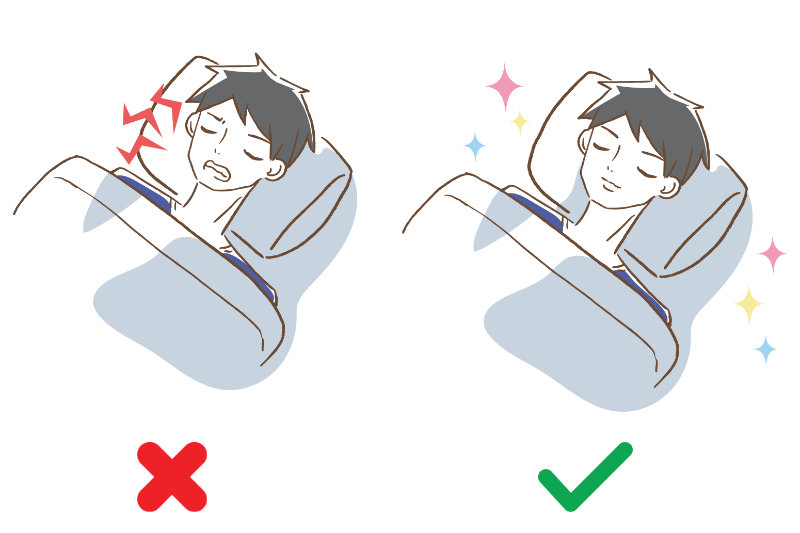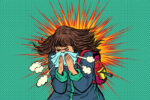When you are stressed, you end up clenching your jaw which is a normal response to the tension that is around you. Think about it when you, for instance, end up having to fix a plumbing issue and you find out that the work required to be done will be a lot more expensive than you realize after the plumber gives you a quote. You will automatically clench your jaw from that alone because one of the major stressors in life involves finances.

However, not everyone only clenches their jaw when they are awake and dealing with stressful situations. They do it in their sleep as well. That results in teeth grinding which is known as bruxism. But if you are asleep and you are not awake to be dealing with stress, how could you clench your jaw then? The stress you feel is either subconscious and you are still expressing it in your sleep or genetics can also play a role in why you are dealing with bruxism. And how do you really know you are grinding your teeth in your sleep? There are three signs that you are dealing with bruxism.
Your Teeth Have Wear And Tear
If you used to have healthy teeth but they are appearing to be worn down, then there is a good chance you are grinding your teeth in your sleep. Your front teeth or your incisors may appear to not be affected too much but it would show in your molars. And you would not be the one to notice it but your dentist would immediately see that when you have your dental checkup.
Your dentist would prescribe you a mouthguard as well as advising you that you need dental care so that the damage done to your teeth are fixed.
You Have Headaches Or Pain In Your Face When You Wake Up
If you have jaw pain, pain anywhere in your face, or headaches after waking up, you may think that you had slept in a bad position. However, the truth is that there is a greater chance that you are grinding your teeth in your sleep which is putting pressure on your jaw. That would explain the pain you feel after awakening.
You could see your doctor but after you tell your doctor your experiences, you will be told to talk to your dentist as it is likely that you are having the pain due to bruxism. You will need to have it treated or else you could end up with the misalignment of the jaw instead. That is known as temporomandibular disorder or TMD. That is when you experience clicking as you bite or chew.
Your Sleep Is Disrupted
You often think that you would wake up abruptly in your sleep due to snoring but teeth grinding would wake you up as well. You may not even remember waking up because it would be momentary but at the same time, you would end up feeling it as you would end up feeling fatigued during the day. If you don’t get a good night’s sleep, then you will be less productive and fatigued the day after. You will be yearning for a nap after lunch as well.
Those are the three signs that you are grinding your teeth in your sleep. And you know that you have to go to the dentist in order to have your teeth examined and cared for, and treated accordingly. However, in most cases, the cause for your teeth grinding in your sleep, which was already mentioned is due to stress.
Managing Your Stress Levels Are The Key To Solving The Griding Issue
Stress is one part of life that is guaranteed in most cases. However, it is not the stress alone that will cause you to grind your teeth. It is your response to stress. And if you are dealing with too much stress, then it is time to evaluate your life and how you can solve it. However, it is very important to develop stress-busting techniques such as meditation and yoga and finding time to unwind after a difficult day. You will also need to look at other forms of respite if you are under too much stress. Basically, the source of the stress needs to be managed in a way where you can tackle it in the ways that are realistic to you.
If your stress is due to finances, talk to your bank, or a company that will help consolidate debt if that is the issue. If your stress is due to caregiving, then you need more respite and look into getting help from other sources. If the stress comes from work, you may have to cut your hours. Either way, finding a solution as well as utilizing techniques to help manage the stress will help you reduce and even eliminate bruxism.



